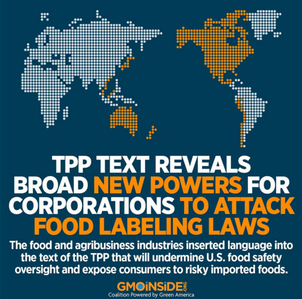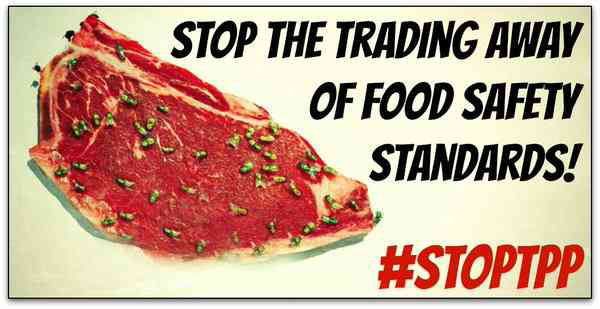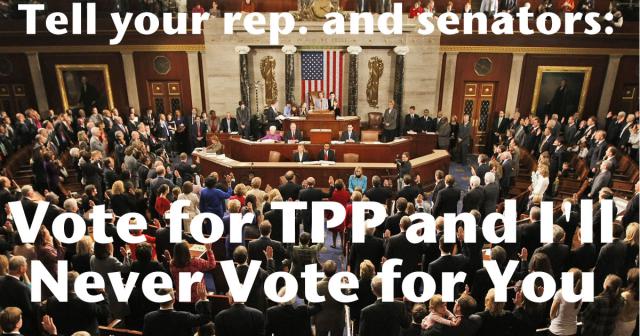
 The TPP would require us to limit food labeling and to import meat and poultry that do not meet U.S. food safety standards The Trans-Pacific Partnership (TPP) would require us to allow food imports if the exporting country's safety regime is deemed "equivalent" to our own, even if it violates our food safety laws. These rules would effectively outsource domestic food inspection to other countries
The TPP would require us to limit food labeling and to import meat and poultry that do not meet U.S. food safety standards The Trans-Pacific Partnership (TPP) would require us to allow food imports if the exporting country's safety regime is deemed "equivalent" to our own, even if it violates our food safety laws. These rules would effectively outsource domestic food inspection to other countries
Under the TPP, any U.S. food safety rule on pesticides, labeling or additives that is higher than international standards would be subject to challenge as "illegal trade barriers." The U.S. could be required to eliminate these rules and allow in the unsafe food under threat of trade sanctions.
The U.S. Food and Drug Administration already inspects less than 1% of all seafood imports for health hazards. Entering into the TPP with Malaysia and Vietnam, both TPP negotiating parties and major seafood exporters, would increase seafood imports and further overwhelm inspectors' limited ability to ensure the safety of our food. Some TPP countries have serious shrimp and fish safety issues. For example, even with the minimal inspections, high levels of contaminants have been found in Vietnam's seafood.
Under the TPP, food labels could also be challenged as "trade barriers." The TPP would impose limits on labels providing information on where a food product comes from. The TPP also would endanger labels identifying genetically modified foods and labels identifying how food was produced. The TPP would expand the limits on consumer labels already included in existing "trade" agreements, like the World Trade Organization (WTO). But already under the WTO, the U.S. "dolphin-safe" tuna fish label has been successfully challenged, and Congress repealed our country-of-origin meat labels after the WTO authorized $1 billion in sanctions from Mexico and Canada until the U.S. repealed the law. And, under the TPP, a foreign meat processing or food corporation operating within the United States could directly challenge our policies that they claim undermine their expectations meaning a barrage of new demands for taxpayer compensation.
Source: PublicCitizen Protecting Health, Safety and Democracy

